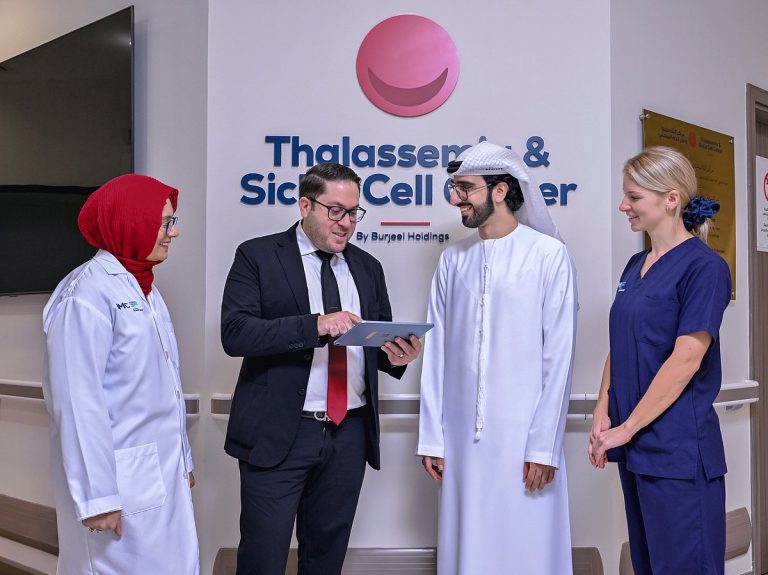Empowering Women for Breast Cancer Awareness and Care
Breast cancer remains a significant health concern for women worldwide, but advancements in early detection and treatment have transformed the landscape of care. At Aster Hospital, a dedicated team of specialists emphasizes the importance of proactive health measures, encouraging women to prioritize their breast health through regular screenings and self-exams. This article explores the insights from medical professionals on navigating breast cancer, from early detection to treatment options, and the vital role of support systems.
The Importance of Early Detection
Dr. Pranay Taori, a Specialist Medical Oncologist at Aster Hospital in Qusais, highlights that early detection is crucial for improving recovery outcomes. Routine screenings, such as mammograms, can identify issues long before symptoms appear, making subsequent treatment more effective. He urges women to integrate regular check-ups into their healthcare routines, akin to dental visits. Ignoring unusual symptoms can delay diagnosis, so it is essential to consult a doctor promptly if something feels amiss.
Recognizing Symptoms and Seeking Help
Dr. Vinotha Krishnamoorthy, a Specialist General and Laparoscopic Surgeon at Aster Hospital in Mankhool, emphasizes the importance of recognizing abnormalities. Symptoms such as lumps, nipple discharge, pain, or changes in breast appearance should prompt immediate medical consultation. While many breast lumps are benign and manageable, timely evaluation is key to determining the appropriate course of action.
Treatment Options Tailored to Individual Needs
Receiving a breast cancer diagnosis can be overwhelming, but Dr. Pranab Karipody Prabhakaran, a Consultant Medical Oncologist at Aster Hospital, reassures patients that their treatment plans will be personalized. Options may include medication, surgery, radiation, or a combination of therapies. It is vital for patients to communicate openly with their healthcare team about their concerns and preferences, ensuring that decisions are made collaboratively.
Surgical Approaches in Breast Cancer Care
Surgery plays a pivotal role in breast cancer treatment. Dr. Afsal Muhammed, a Specialist Surgical Oncologist at Aster Hospital, explains that the surgical approach is tailored to each patient’s needs. For early-stage breast cancer, a wide excision may be performed to remove the tumor while preserving most of the breast. In some cases, a mastectomy may be necessary. Advances in surgical techniques have made procedures more precise, leading to quicker recoveries and improved outcomes.
The Role of Self-Exams and Lifestyle Choices
Dr. Fathimath Surumi B P, a Specialist in Obstetrics and Gynecology at Aster Clinic, emphasizes the importance of self-exams. Regularly checking for changes in the breasts can lead to early detection of potential issues. Women should feel empowered to discuss any concerns with their doctors and incorporate self-checks into their health routines.
Dr. Insha Khan, also a Specialist in Obstetrics and Gynecology at Aster Specialty Clinic, highlights that lifestyle choices can significantly impact breast cancer risk. Maintaining an active lifestyle, eating a balanced diet, limiting alcohol consumption, and managing stress are all beneficial for overall health. These habits should be viewed as acts of self-care rather than mere preventive measures.
Understanding Screening Guidelines
Dr. Indira Venkataraman, a Specialist in Obstetrics and Gynecology at Aster Clinic, explains that screening guidelines vary based on age and individual risk factors. Most women begin annual mammograms in their 40s, but those with a family history of breast cancer may require earlier screenings. It is essential for women to consult their healthcare providers to determine the best screening schedule for their needs.
The Importance of Support Systems
Dr. Hannabi Hashimkutty, a Specialist in Obstetrics and Gynecology at Aster Clinic, emphasizes that no one should face breast cancer alone. Emotional support from family, friends, and healthcare professionals is crucial during this challenging time. Sharing fears and hopes can foster resilience, and there are numerous resources available, including support groups and counseling services, to help patients navigate their journeys.
Building a Community of Strength
The journey through breast cancer is not just about treatment; it is also about reclaiming confidence and dignity. By sharing experiences and supporting one another, women can transform vulnerability into strength. The initiative “Pink About It” encourages open conversations about breast cancer, allowing women to voice their concerns and seek answers together.
FAQs
What are the common signs of breast cancer?
Common signs include lumps, changes in breast shape or size, nipple discharge, and skin alterations. If you notice any of these symptoms, consult a healthcare professional promptly.
How often should I get screened for breast cancer?
Most women should begin annual mammograms in their 40s, but those with a family history or other risk factors may need to start earlier. Discuss your screening schedule with your doctor.
What lifestyle changes can help reduce breast cancer risk?
Maintaining a healthy weight, staying physically active, eating a balanced diet, limiting alcohol intake, and managing stress can all contribute to lowering breast cancer risk.
Conclusion
Breast cancer awareness and early detection are vital in improving outcomes for women. By prioritizing regular screenings, recognizing symptoms, and fostering supportive communities, individuals can navigate this journey with confidence. Empowerment through knowledge and shared experiences can lead to resilience and hope in the face of breast cancer.
Also Read:
Breast Cancer Awareness: Myths and Screening Importance
Cleveland Clinic Abu Dhabi Advances Breast Cancer Care
Unreturned Hostages’ Remains in Gaza: Families Seek Closure







